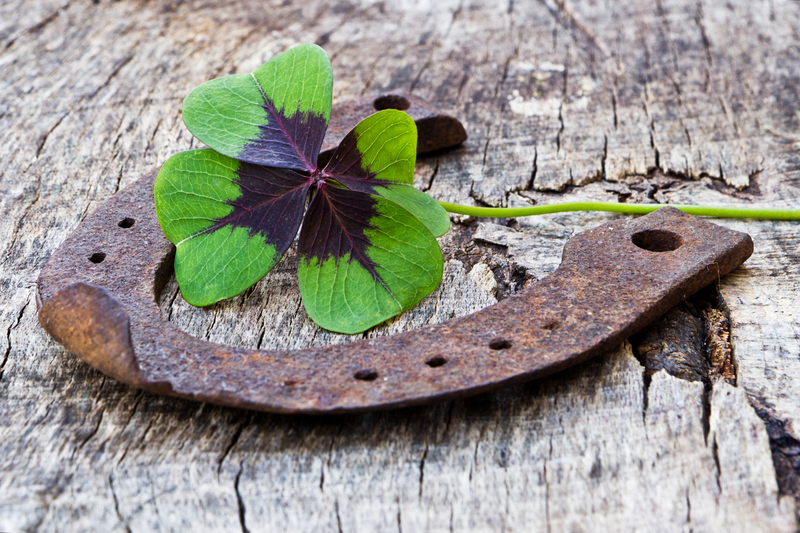Mind and Home: Declutter for Emotional Health
Posted on 09/02/2025
In our fast-paced, consumer-driven society, it's easy for our homes to become cluttered with items we don't need and for our minds to become overwhelmed as a consequence. While the act of decluttering might seem daunting, it is, in fact, a powerful tool for improving our emotional health. This article explores how decluttering your home can lead to a more balanced, stress-free life and offers practical tips to get started.
Understanding the Connection Between Clutter and Mental Health
Clutter is not just about having too many physical items in your space. It's about the emotional and psychological toll that excess possessions can take. Scientific research has shown a strong correlation between clutter and heightened levels of stress, anxiety, and even depression.
When you walk into a cluttered room, your brain is bombarded with excessive stimuli. This constant sensory overload can lead to an increased production of cortisol, the stress hormone. Prolonged exposure to high levels of cortisol can negatively affect your mood, cognitive function, and overall well-being. A cluttered home can also drain your energy, reduce your productivity, and make it difficult to focus on the tasks at hand.

Psychological Benefits of a Decluttered Space
On the flip side, a tidy and organized environment can have remarkable benefits for your mental health. Here are some key psychological advantages of a clutter-free space:
- Reduced Stress: A clean and organized space can help lower cortisol levels, leading to a calmer state of mind.
- Improved Concentration: An organized environment makes it easier to focus on tasks, thereby increasing productivity and efficiency.
- Enhanced Mood: A decluttered space contributes to a sense of accomplishment and well-being, which can significantly boost your mood.
- Better Sleep: A serene and orderly bedroom can promote better sleep quality, leaving you more refreshed and energized.
- Increased Creativity: A clear space allows for a clear mind, fostering creativity and problem-solving skills.
Practical Steps to Declutter Your Home
Decluttering doesn't have to be an overwhelming project. Here are practical steps to help you get started:
1. Start Small
Begin with a small, manageable area, such as a drawer or a single closet shelf. Completing a small task can provide a sense of accomplishment and motivate you to tackle larger areas.
2. Create a Sorting System
Use the four-box method: one box for items to keep, one for items to donate, one for items to sell, and one for items to discard. This method helps you systematically go through your possessions without feeling overwhelmed.
3. Set Clear Goals
Define what you want to achieve through decluttering. Whether it's creating more space, reducing stress, or simply wanting a more organized home, having clear goals will keep you focused and motivated.
4. Follow the "One In, One Out" Rule
To prevent future clutter, adopt the "one in, one out" policy. For every new item you bring into your home, let go of an existing one. This rule helps maintain a balance and keeps clutter at bay.
5. Make Decluttering a Habit
Rather than viewing decluttering as a one-time project, make it a regular part of your routine. Allocating just 10 minutes a day to tidying up can make a significant difference over time.
Emotional Challenges and How to Overcome Them
Decluttering can often evoke strong emotions, especially if you are attached to your belongings. Here are some strategies to overcome emotional barriers:
Sentimental Items
It's natural to have attachments to items with sentimental value, but holding onto too many can contribute to clutter. Consider keeping just one or two items that hold the most significance and letting go of the rest. Take photos of sentimental objects before disposing of them to preserve the memories without the physical burden.
Guilt of Letting Go
Many people feel guilty about getting rid of things they've spent money on or received as gifts. Remember that holding onto items out of guilt doesn't serve your well-being. Focus on the positive impact of decluttering on your emotional health rather than on the object itself.
Fear of Future Need
It's common to keep items because you might need them someday. In reality, most of these just-in-case items are rarely used. Trust in your ability to acquire what you need when you truly need it.
Maintaining the Decluttered Space
Once you've achieved a clutter-free home, maintaining it is crucial. Here are some tips to keep your space organized:
Regular Cleaning
Set aside time each month to reassess and address any new clutter. Regular maintenance prevents mess from building up again.
Mindful Consumption
Become more mindful of what you bring into your home. Before making a purchase, ask yourself if the item is necessary and if it adds value to your life.
Involve the Whole Family
Encourage all household members to take part in maintaining the decluttered space. Assign specific areas for them to manage and create a collective responsibility for a tidy home.

Decluttering Beyond Physical Space
While physical decluttering is crucial, it's also important to declutter mentally and digitally:
Mental Decluttering
Mental clutter often manifests as stress and anxiety. Practices such as meditation, journaling, and mindfulness can help clear your mind and foster emotional well-being.
Digital Decluttering
In today's digital age, it's easy for our devices to become cluttered with emails, files, and apps. Regularly clear out unnecessary digital items to reduce stress and improve productivity.
Conclusion: A Path to Emotional Wellness
Decluttering is more than just a physical act--it's a journey towards emotional wellness. By creating a serene and organized space, you can reduce stress, enhance your mood, and improve overall mental health. Remember, decluttering is a process, not a destination. Start small, stay committed, and enjoy the profound impact it can have on your life.
Latest Posts
Expert Techniques for Transporting Hazmat
Proper Ways to Dispose of Cardboard Boxes
Extra Costs in Global Relocation Budgeting
Ways to Save Money on Your Move
Packing Hacks: How to Make Your Own Wardrobe Boxes for Moving







